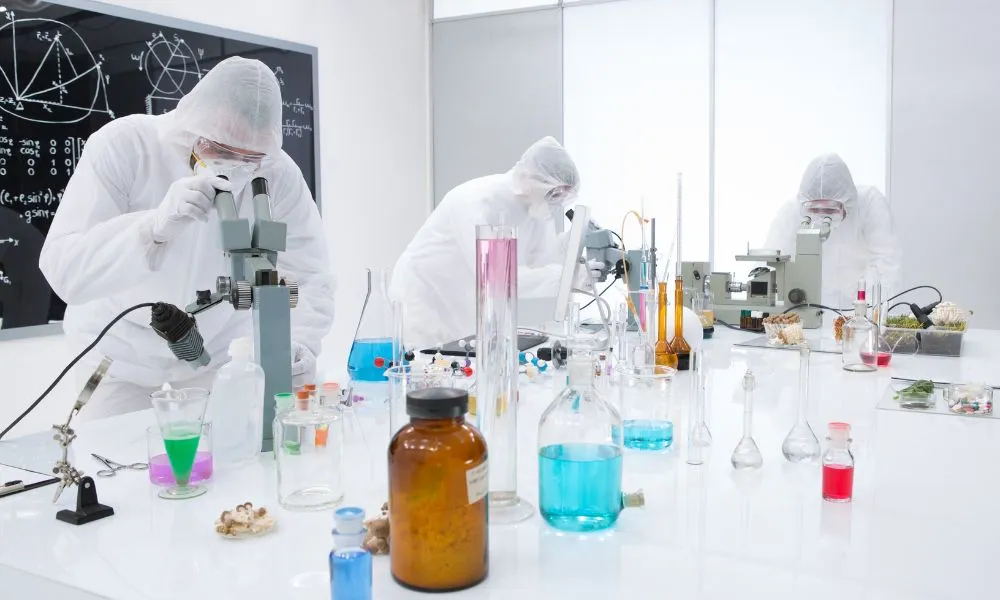In modern farming practices, agricultural chemicals enhance productivity and maximize crop yield. These chemicals, also known as agrochemicals, encompass a wide range of substances, including fertilizers, pesticides, herbicides, and plant growth regulators. Their significance lies in their ability to protect crops from pests and diseases, promote plant growth, and optimize nutrient uptake for healthier, more abundant yields. These essential inputs are necessary for farmers to meet the increasing demand for food in a world with a growing population.
The agricultural chemicals industry is a critical economic sector, supporting global food production and ensuring food security. It includes various types of chemicals designed to address specific agricultural needs. The significance of this industry is evident in its contribution to sustaining agricultural productivity and meeting the demands of a growing population. This sector plays a key role in global food production by supporting farmers with effective agrochemical solutions.
Agricultural Chemicals: An Industry Overview
Over the years, the agricultural chemicals industry has witnessed significant growth, driven by advancements in science and technology. Developing more targeted and environmentally friendly agrochemicals has been a significant trend. Additionally, the industry’s focus on sustainable agriculture practices and integrating digital technologies in farming has further fueled its growth prospects.
Exploring the Best Paying Jobs in Agricultural Chemicals
Research and Development Roles
- Agricultural Chemist: Agricultural chemists are at the forefront of developing innovative agrochemical products and solutions. They conduct extensive research to improve existing chemicals and create new formulations that are effective, safe, and environmentally friendly. Agricultural chemists can earn an annual salary from $70,000 to $120,000.
- Formulation Scientist: Formulation scientists specialize in creating precise and efficient blends of agrochemicals, ensuring their stability and effectiveness. They work closely with agricultural chemists and engineers to transform active ingredients into practical and usable products. Formulation scientists command an annual salary of $80,000 to $130,000.
Sales and Marketing Positions
- Agricultural Chemical Sales Representative: Sales representatives in the agricultural chemicals industry are crucial in connecting with farmers and promoting agrochemical products. They provide technical expertise, recommend suitable products, and build lasting customer relationships. They can earn a yearly salary of $60,000 to $100,000 or more, depending on their sales performance.
- Product Manager: Product managers in the agricultural chemicals industry oversee the development and marketing of agrochemical products. They conduct market research, identify customer needs, and collaborate with R&D teams to bring new products to market. Product managers in the agricultural chemicals industry earn an annual salary from $90,000 to $140,000.
Regulatory and Compliance Jobs
- Environmental Scientist: Environmental scientists in this sector ensure that agrochemical products comply with environmental regulations and do not threaten ecosystems. They conduct rigorous assessments of the potential ecological impact of these chemicals and help develop sustainable practices. Environmental scientists can earn an annual salary of $65,000 to $110,000.
- Regulatory Affairs Specialist: Regulatory affairs specialists play a critical role in obtaining the necessary approvals and certifications for agrochemical products. They liaise with regulatory authorities, prepare documentation, and ensure local and international regulations compliance. Their expertise ensures that products meet the required safety and quality standards, making them indispensable in the industry. Specialists in regulatory affairs earn an annual salary of $75,000 to $120,000.
Manufacturing and Production Careers
- Production Manager: Production managers oversee the manufacturing processes of agrochemical products, ensuring efficient and cost-effective production. They coordinate with various teams, optimize production schedules, and maintain quality standards. The salary of a product manager ranges from $80,000 to $130,000.
- Quality Control Analyst: Quality control analysts are responsible for ensuring the consistency and quality of agrochemical products. They conduct rigorous testing, analyze data, and ensure products meet strict quality standards. Given the critical nature of quality control in this industry, quality control analysts can earn an annual salary of $65,000 to $100,000.
Field and Technical Support Roles
- Agronomist: Agronomists provide technical advice and support to farmers to optimize crop production. They study soil conditions, recommend suitable agrochemicals, and develop tailored crop management plans. The demand for agronomists is increasing as farmers seek to maximize their yields and adopt sustainable practices. Consequently, agronomists can expect competitive salaries ranging from $70,000 to $110,000.
- Field Research Technician: Field research technicians are involved in conducting experiments and field trials to evaluate the effectiveness of agrochemical products. They collect data, analyze results, and provide valuable insights to support product development and improvement. Field research technicians can earn an annual salary of $55,000 to $90,000.
In conclusion, the world of agricultural chemicals offers many lucrative job opportunities. From research and development to sales, marketing, regulatory compliance, manufacturing, and technical support, professionals in this industry play an indispensable role in supporting global food production and sustainability.

Skills and Qualifications Required for High-Paying Jobs
The agricultural chemicals industry seeks professionals with technical expertise, analytical abilities, and effective communication skills. A solid understanding of chemistry, biology, and agronomy is vital for developing formulations and supporting farmers. Problem-solving skills are essential for tackling complex challenges, while analytical abilities aid in data-driven decision-making.
A relevant bachelor’s degree, such as in chemistry or agronomy, is typically required to excel in these roles. Advanced degrees or certifications, like a Ph.D. or regulatory affairs certification, can enhance job prospects. Regulatory knowledge is crucial for positions involving compliance with local and international regulations.
Industry Challenges and Opportunities
The agricultural chemicals sector faces challenges that call for innovative solutions and sustainable practices. Environmental concerns arise from the impact of agrochemicals on ecosystems and human health, necessitating a balance between pest control and environmental stewardship. Managing resistance and residue is another challenge to ensure the effectiveness and safety of agrochemicals. Strict regulatory compliance demands extensive testing and documentation.
However, the industry also presents opportunities for growth and innovation. Biological solutions, like natural pesticides, are gaining popularity due to the focus on sustainable agriculture. Precision agriculture, leveraging digital technologies and data analytics, optimizes agrochemical usage for efficiency. Advancements in biotechnology have led to genetically modified crops with built-in pest resistance. Emphasizing sustainable practices caters to consumers’ demand for eco-friendly products.
Conclusion
The world of agricultural chemicals offers a diverse range of high-paying job opportunities. Professionals with the right skill set, including technical expertise, problem-solving abilities, and effective communication, are well-positioned to thrive in this dynamic industry. While challenges related to environmental impact and regulations persist, the sector’s focus on innovation and sustainability opens the door to exciting growth prospects.
By staying abreast of emerging trends and partnering with specialized staffing agencies like RightWorks, the agricultural chemicals industry can continue to attract top talent and address the global challenges of food production and environmental stewardship.





